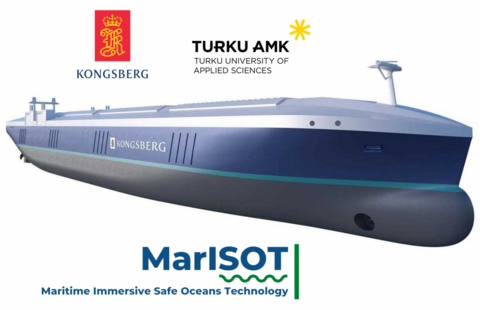Research and Development work for autonomous vessels is boosted by Kongsberg’s 1m€ support to TUAS

Co-operation between Turku University of Applied Sciences (TUAS) and the Norwegian industrial group Kongsberg is accelerating the development work of autonomous vehicles. Kongsberg will provide state of the art equipment to TUAS worth more than one million euros that can develop independent and remotely controlled shipping. According to Anton Westerlund Kongsberg, Director of Remote Operation Solutions, Kongsberg says that investing in universities promotes Finnish know-how, and through it competitiveness.
The hardware includes thermal and night vision cameras, research, weather station, data acquisition sensors, server data processing, and wind and visibility sensors. The equipment will be located at Turku University of Applied Sciences virtual reality and artificial intelligence research centre FIT Turku, in various laboratories, and the university’s measuring vessel.
Part of the equipment was originally designed when Rolls-Royce made world- first pilots for an autonomous and remote-controlled vessel on a Falco ferry in 2018. Since then, Rolls-Royce’s commercial marine operations were sold to Kongsberg in 2019.
MarISOT (Maritime Safe Oceans Technology) is not the only research and technology carried on at TUAS that can use this state of the art equipment. ARPA (Applied Research Platform for Autonomous Systems) is another important project and develops certification environments for autonomous and remote controlled movement, for maritime transport.
According to TUAS academics and research leaders at FIT on the MarISOT technology, Prof Dr Evangelos Markopoulos and Prof Dr Mika Luimula, automated vessels and autonomous shipping in general extends its importance beyond the economic benefits and transportation revolution. MarISOT approaches the autonomous vessels arena from a perspective that increases human safety at sea, and reduces accidents that can cause significant human and environmental loses, but also from the economic development that autonomous vessels can bring to regions that can be approached with more safety and frequency.
MarISOT is the outcome of a well-planned Green Ocean Strategy executed at TUAS which now extends to Pink Oceans as it increases its compliance with the UN2030 agenda and the 17 UN Sustainable Goals.






